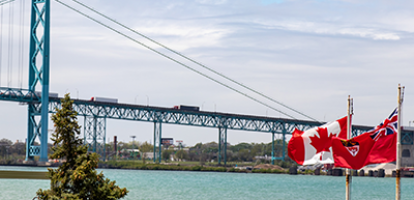From: William Robson and Farah Omran
To: Canada’s Finance Ministers
Date: May 3, 2018
Re: Rating the Fiscal Accountability of Canada’s Senior Governments
Canada’s senior governments tax and spend a lot, but don’t consistently tell us what they are doing.
In our new report for the C.D. Howe Institute we grade the transparency and reliability of the federal, provincial and territorial governments’ financial reports and propose easy steps to improve them.
Canadians need to be able to monitor and influence how their government manage public funds. Too often, however, legislators, taxpayers and citizens cannot quickly and confidently find reliable numbers. Budgets and financial statements that are clearer, timelier, and more accurate would be a big help.
The 2018 version of the Institute’s report focuses on the relevance, accessibility, timeliness and reliability of governments’ key financial reports: their budgets, the estimates their legislatures vote to authorize spending, and the audited financial statements they publish after year-end. The 2018 scorecard puts Prince Edward Island (D) and The Northwest Territories (D+) near the bottom of the rankings.
Ontario, a good performer in the past, dropped to a C this year. The difference between what Ontario presents as total expenditures and what the Ontario Auditor General demands amounts to $1.4 billion, or 1 percent of spending. Quebec (C+) and British Columbia (B-) also had problems with their auditors.
A key aim of this annual survey is to encourage further progress. Compared to previous years, Canada’s federal, provincial and territorial governments provide better financial information than they used to.
Alberta (A+) and New Brunswick (A+) topped the rankings. Each has fixed major problems in the past few years. Moreover, these outstanding performers show that good numbers can be timely: New Brunswick delivers its budget earlier than anyone else – in January, well before the beginning of the fiscal year – and Alberta publishes its results earlier than anyone else. The federal government provides reliable numbers, but buries them deep in its budget, and providing members of Parliament with spending estimates that let them see whether their votes are consistent with the budget is an ongoing challenge in Ottawa.
We propose several policy solutions to improve the transparency of public finances in Canada:
- Public accounts should reflect public sector accounting standards;
- Budgets should match public accounts;
- Estimates should match budgets, in presentation and timing;
- Key numbers must be accessible and recognizable;
- Budgets should appear before the fiscal year starts;
- Year-end results must be timely.
Governments play massive roles in Canada’s economy and in Canadians’ lives. We need transparency and accountability in fiscal policy as much as we need it anywhere. The top performers show what is possible if Canadians demand better performance from their governments.
Bill Robson is the President and CEO and Farah Omran is a junior policy analyst at the C.D. Howe Institute.
To send a comment or leave feedback, email us at blog@cdhowe.org.
The views expressed here are those of the authors. The C.D. Howe Institute does not take corporate positions on policy matters





